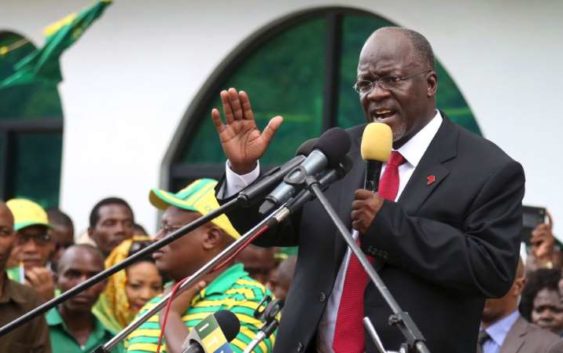- Governor Sanwo-Olu flags off Ojota-Opebi Link Bridge, to be completed in 20 months
- Allow Nigeria go to 2022 World Cup, don’t play qualifiers – Ghana Parliament member tells Black Stars
- There was no second sex tape, Kim Kardashian refutes Kanye West’s claims
- Jaruma Remanded In Prison Over Post On Regina Daniels And Ned Nwoko
- Lanre Gentry confirms paternity of last son with Mercy Aigbe, says ‘He’s my son’ (Photo)
Tanzania’s human rights abuses have cost it $310 million in aid in two days

Tanzania continues to find itself at the center of negative attention globally.
On Wednesday (Nov. 14) the Danish government said it would withhold 65 million crowns ($9.8 million) in aid citing allegations of human rights abuses. The minister of development cooperation Ulla Tornaes announced the decision on Twitter noting “negative developments” and “unacceptable homophobic statements.”
The day before, the World Bank suspended a $300 million educational loan following a government policy banning pregnant girls from going to school. That ban has been roundly criticized by the development community.
“Barring teenage mothers from education not only perpetuates discriminatory gender norms, but is also an indication of government failures to address the root cause of widespread sexual violence against adolescent girls,” said Judy Gitau, a human rights lawyer with Equality Now in Nairobi.
Citing the crackdown on homosexuals, the World Bank has already suspended visiting missions to the East African nation, according to several reports.
It come days after the government arrested 10 men on suspicion of being gay on the island of Zanzibar. In late October, the regional commissioner of Dar es Salaam, Paul Makonda, had announced plans to form a government task force that would begin operations in early November aimed at hunting down people believed to be gay; officials at the foreign ministry later distanced the state from his comments.
Since coming to power in 2015, president John Magufuli’s government has stepped up the crackdown on everything from mineral processing to free speech and the registration of foreign ships—earning him the title “The Bulldozer.” Even though he was elected on an anti-corruption platform, his administration has closed newspapers and radio stations, arrested journalists and free press advocates, and introduced an over $900 charge to license blogging.
Officials also amended the Statistics Act in September, criminalizing the collection, analysis, and dissemination of any data without first obtaining authorization from the government—an issue the World Bank said “could have serious impacts on the generation and use of official and non-official statistics, which are a vital foundation for the country’s development.”
MSN